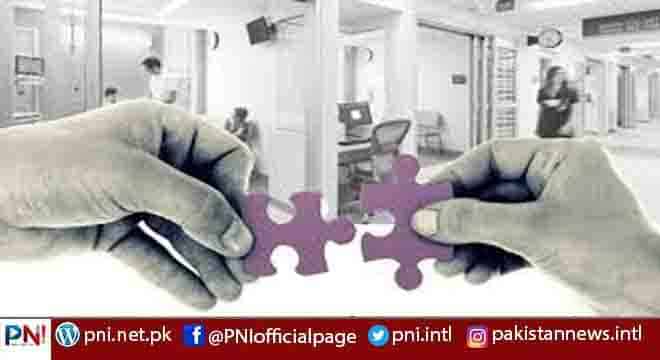ISLAMABAD, May 15 (APP):Public-Private partnership for rendering quality health care services in far flung areas of the country is look more imperative and a way forward to establish more sustainable and strong society.
These remarks were expressed by the Director Operation MERF (Medical Emergency Resilience Foundation Pakistan) Syed Ghalib in an exclusive interview with APP.
He said that Pakistan amongst the countries where public health services is not enough to cater the demands of fast grow population, ultimately the people left unattended and their minor diseases which leads to chronic ones and later in stages turn into disease, like cirrhosis, cancer and causes of death.
Syed Ghalib said the country health care system demands the availability of rapid diagnostic tests and cost effective DAA (direct-acting antiviral) tablets that would revolutionize the treatment process, such as Hepatitis C screening and treatment etc.
Currently, as we know, he said that the government of Pakistan is committed to achieve the Sustainable Development Goals (SDGs) for eradicating poverty, providing health and education facilities, ensuring gender equality and combating HIV by 2030 in partnership with the World Health Organization and the World Bank.
Syed Ghalib emphasized that to meet the challenges of globalization and achieving a prosperous Pakistan in the 21st century we need to promote and practice PPP in providing health care services to improve the health status of our society.
Replying to a question about the alarming increase here in cases of TB and HIV, he said that the rising number of TB and HIV cases in Pakistan loudly demands stronger collaboration with the private healthcare services to tackle TB-HIV co-infection.
Today, the world has acknowledged the importance of Public Private Partnership (PPP) in health care system and its effectiveness in providing health services to the people, he remarked.
To another query about the hurdle and challenges to adopt this system, Syed Ghalib said that PPP are considered to be a successful model of health reform in the health sector of many countries, but in Pakistan policy formulation is so efficient and well directed to bring country health sector on international levels, while, he said the implementation of various components of health sector programme is always a big challenge due to certain reason, including establishing norms, tackling morality and accountability issues, building a legislative framework, defining operational strategies, as well as safeguarding the Consumer Protection Act to safeguard the interest of consumers.
Explaining in details the impacts of PPP, Syed Ghalib said that PPP are to create a financially sustainable system, capacity reform and management reform in the public–private sector which may lead to increased health care delivery and utilization, preventing unintended outcomes of private sector growth in health, control health care costs.
Replying to another question about MERF’s relief and health services, Syed Ghalib said that MERF aims to improve access to quality health care services which are equitable, efficient and affordable in collaboration with governments, international organizations and private entities.
He said it also provides services in health care delivery, capacity building of health workers, heath care governance, supply chain management, health management information system and health care policy and planning in order to positively contribute to the health status of the population.
He said the main objectives of the organization are saving lives by providing effective, efficient and affordable healthcare in resource poor settings.
Follow the PNI Facebook page for the latest news and updates.









